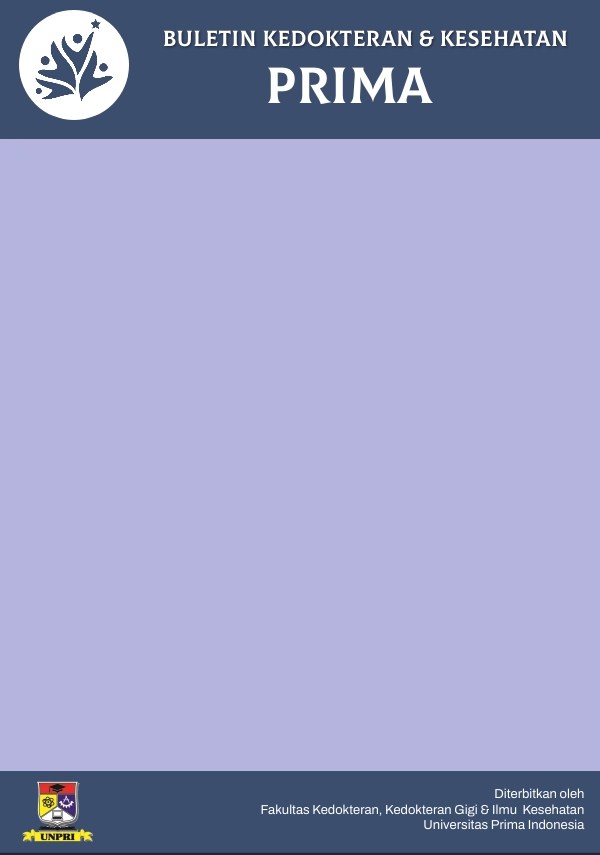Abstract
Self-medication, defined as the use of medication without a prescription or professional guidance, is a global phenomenon with significant implications for both individual and public health. This behaviour is frequently motivated by the desire to alleviate minor ailments, avoid healthcare costs, or circumvent lengthy consultation waiting times. While it can constitute a component of responsible self-care, self-medication also carries risks such as adverse drug reactions, drug interactions, antibiotic resistance, and the potential for misuse. This research aimed to analyse the factors associated with self-medication behaviour among non-healthcare students at Universitas Prima Indonesia. The study employed an analytical observational design with a cross-sectional approach. Data were collected via an online questionnaire distributed to 188 undergraduate students from the Faculty of Economics at Universitas Prima Indonesia, selected using simple random sampling. The independent variables in this study were gender, knowledge of self-medication, peer recommendations, and academic stress, while the dependent variable was self-medication behaviour. Data analysis involved univariate statistics to describe the characteristics of each variable and bivariate analysis using the Chi-squared test to examine the relationships between variables. The results indicated that knowledge (OR=3.230; p=0.000), peer recommendations (OR=2.046; p=0.000), and academic stress (OR=1.552; p=0.002) were significantly associated with self-medication, whereas gender was not (p=0.126). It can be concluded that a lack of knowledge, peer influence, and academic stress increase the risk of self-medication. Educational interventions and mental health support are necessary to reduce unsafe self-medication practices.

This work is licensed under a Creative Commons Attribution-NonCommercial 4.0 International License.
Copyright (c) 2025 Dedech M. Sari Damanik, Nur Aini Siregar, Roslina Paulina, Tri Suci, Astriani Natalia Br Ginting
